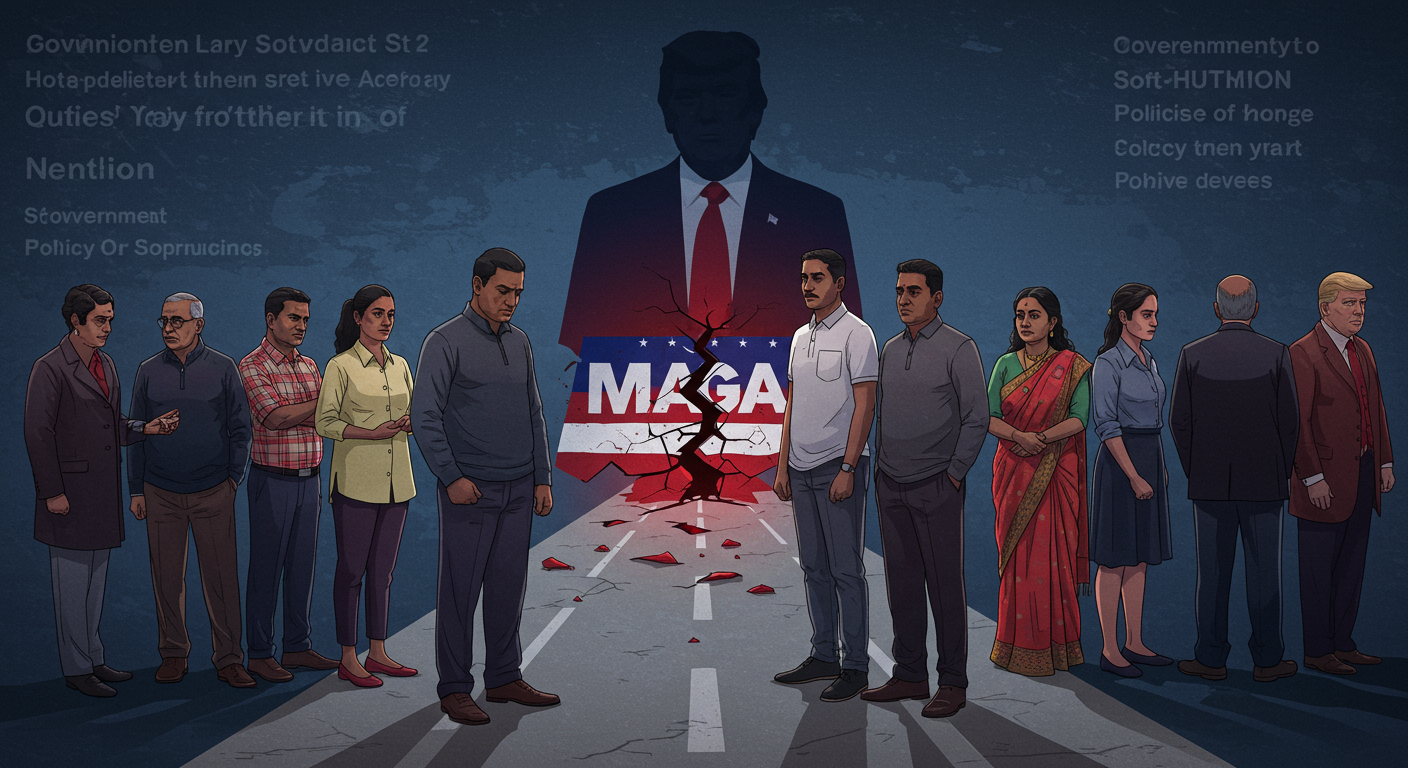
I've been observing the political landscape with a keen eye, especially the shifts within various communities. It’s striking to see reports discussing how some “Pro-Trump desis” are now rethinking their alignment, seemingly caught in the evolving “MAGA Civil War” and moving away from the GOP. This kind of political re-evaluation isn't just a headline; it reflects deeper currents impacting our societies.
The recent news from outlets like The Boston Globe and The Washington Post paints a picture of intense political friction. We read about the ongoing government shutdown, which, as reported by The Boston Globe, disrupted air travel and even delayed SNAP payments, impacting countless Americans. Governor Healey (maura.healey@state.ma.us), for instance, explicitly blamed Donald Trump for cutting off heating assistance funds, highlighting the tangible effects of political decisions on everyday lives.
The Washington Post further details how President Donald Trump's influence extends to critical areas, from demanding changes to ACA subsidies, as noted by authors like Dan Diamond (dan.diamond@washpost.com), Matthew Choi, and Maegan Vazquez (maegan.vazquez@washpost.com), to even a “guns-a-blazing” threat concerning Nigeria, reported by Rachel Chason (rachel.chason@washpost.com), Emily Davies, Alex Horton (alex.horton@washpost.com), and Michelle Boorstein (michelle.boorstein@washpost.com). These actions and the ensuing political climate, as analyzed by various contributors including Amber Phillips (amber.phillips@washpost.com), Youyou Zhou, and Fareed Zakaria, certainly create an environment of uncertainty and division.
Such turbulence in governance and policy is a serious concern. I recall my thoughts from years ago on the importance of stable frameworks for economic prosperity and societal well-being. In my blog, "New industrial policy linking global supply chain on the anvil: Suresh Prabhu" [http://mylinkedinposting.blogspot.com/2019/01/new-industrial-policy-linking-global.html], I highlighted discussions by individuals like Suresh Prabhu (suresh.prabhu@rishihood.edu.in) on how manufacturing relies on stable global value chains. Similarly, in "India can use the strength of its domestic market to push exports, says Niti Aayog’s Amitabh Kant" [http://mylinkedinposting.blogspot.com/2019/09/india-can-use-strength-of-its-domestic.html], the CEO of NITI Aayog, Amitabh Kant (amitabh.kant@nic.in), shared his views on India's integration into global supply chains, underscoring the need for predictability and consistent policy.
The core idea I want to convey is this — take a moment to notice that I had brought up thoughts on governance and economic stability years ago. In "Economy : The Way Back" [http://myblogepage.blogspot.com/2020/10/too-little-too-late.html], I discussed the crucial role of government intervention, like unemployment relief, to minimize citizen hardship during transitions. This insight is strikingly relevant today when a government shutdown directly affects the financial stability of many, delaying essential benefits. I also reflected on the practicalities of effective administration in "Civic whip in Mumbai" [http://mylinkedinposting.blogspot.com/2020/03/civic-whip-in-mumbai-offices-ordered-to.html], stressing the need for robust systems to implement and monitor policies. Seeing how things have unfolded, with political divisions leading to tangible disruptions, validates those earlier insights and renews the urgency to revisit them.
When political discourse becomes consumed by internal conflicts and divisive rhetoric, it inevitably impacts trust. For a community like the desis, who often value strong leadership and stability, seeing their chosen political home embroiled in such a “civil war” might naturally lead to a re-evaluation of allegiances. It’s a reflection of how foundational stability—both economic and political—is for any society.
We need to foster environments where policies are debated constructively and implemented effectively, rather than becoming casualties of partisan strife. The well-being of communities depends on it.
Regards,
Hemen Parekh
Of course, if you wish, you can debate this topic with my Virtual Avatar at : hemenparekh.ai






No comments:
Post a Comment